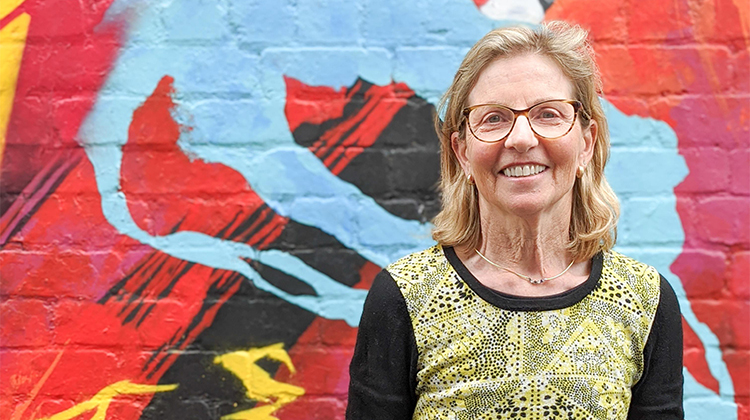‘Cluttered Curriculum’ not the crux of our education problem

A review of the foundation to Year 10 National Australian Curriculum is underway following calls to declutter the ‘crowded’ curriculum but a cluttered curriculum is only half the problem.
Decluttering the curriculum is essential, giving teachers more time to explore subjects in-depth, however, it is only part of our education problem.
Our schools need to be simultaneously investing in upskilling on the delivery of best-practice curriculums with consistently rich, integrated and engaging class plans that are able to be differentiated for students of all abilities.
So, yes, we need to move away from trying to cover as much content as possible, but more importantly, we need to ensure that our schools and teachers are able to deliver content and facilitate skill development, in a way that truly engages all students and fosters a life-long love of learning.
Decluttering the curriculum paves the way for an even greater focus on developing 21st-century skills, but ultimately it comes down to each school to ensure their classrooms are delivering on the promise to prepare our students for the future.
Throughout my career, speaking with the general public, their understanding of how lessons are developed is quite surprising. Often people think this is hand-delivered from the government. It isn’t. Our overstretched, time-poor primary school teachers who have some of the highest rates of burnout, are often given only two planning days per semester to develop all their units of work. Furthermore, it shouldn’t fall to our teachers to overhaul the entirety of their class plans once curriculum reforms are mandated. As COVID-19 has revealed, their plates are quite full already.
Delivering consistently rich, integrated and engaging units of work that can be differentiated for students of all abilities is no small feat, and something many teachers are still grappling with.
After years spent consulting to schools and teaching these best-practice teaching methods, showing how to write a strong curriculum, it became apparent that teachers still didn’t have time to execute these learnings, so I went away and developed something that could be easily implemented to support schools. This led to the co-creation of MAPPEN – a way to teach content AND skills. MAPPEN is a world-first comprehensive online curriculum for primary schools, complete with in-built professional development for teachers. Since launching, MAPPEN has supported more than 350 schools in delivering exemplary class plans to more than 80,000 primary school students across Australia.
At its core, MAPPEN weds process and content and pushes beyond a ‘thinking curriculum’ to ensure students understand their role as active global citizens, embracing different cultural perspectives, understanding themselves as learners, applying ethical principles in their day to day encounters and developing habits such as persistence and resilience.
Five Layers of an exemplary curriculum teaching 21st-century skills:
1 Learning and thinking capabilities
Beyond facts and figures, our students need to be prepared to critically evaluate the world as it changes. With technology shifting the way we consume information daily, the ability to critically evaluate which news sources are reputable is more important than ever. Our students also require an ability to imagine creative solutions. We must include a range of different opportunities for students to seek out different ways to both identify and solve issues in their lives.
2 ICT literacy
Information and communications technology (ICT) literacy is the ability to use technology to develop 21st-century content knowledge and skills, in the context of learning core subjects. Students must be able to use technology to learn content and skills enabling them to learn, think critically, solve problems, use information, communicate, innovate and collaborate.
3 Global competencies
Mark Treadwell, an educational consultant, outlines competencies in a globally connected world that provide students with the personal and interpersonal skills that enable them to develop a sense of who they are.
These include:
- A sense of identity
- Thinking and questioning skills
- Self-management skills
- An ability to collaborate effectively
- Cultural competency
Other skills that I believe students need to develop include:
- Leadership
- Ethics
- Accountability
- Adaptability
- Personal productivity
- Personal responsibility
- Social responsibility
4 Differentiated Learning
We know that students learn at different rates with varying degrees of competence. The role of the teacher is to match lessons with the skills and capabilities of their students. Psychologist and social constructivist Lev Vygotsky (1896–1934) coined the phrase ‘The Zone of Proximal Development’ which he defined as
"The distance between the actual developmental level as determined by independent problem solving and the level of potential development as determined through problem-solving under adult guidance, or in collaboration with more capable peers".
In short, teachers need to first determine each student’s capabilities and then provide them with appropriate learning opportunities that are age-appropriate, meaningful and engaging. Well-designed, carefully crafted lesson plans lend themselves more easily to differentiation of:
- The content being learned
- Processes through which learning takes place
- Products that enable students to demonstrate their understandings
5 Concept-based
A concept-based curriculum emphasises ‘big ideas’ that can span multiple learning areas. For example, students studying the concept of ‘Change’ may consider ways that society has changed over time, changes in physical matter in science, changes in weather patterns in geography and changes in technology.
Learning through concepts allows for a broader view of knowledge while simultaneously developing a deep understanding and demanding high-order thinking. When we think conceptually, we scrutinise facts, consider what we already know and look for patterns and connections. This can then lead to creative solutions. When learning through concepts students can generalise and develop theories. The transferable nature of concepts also provides for more engaging and stimulating learning experiences.
Karen Green
Education and curriculum specialist and co-founder of MAPPEN, Karen Green, has spent more than 40 years in education, the last 20 consulting to schools around the creation and delivery of exemplary lesson plans.